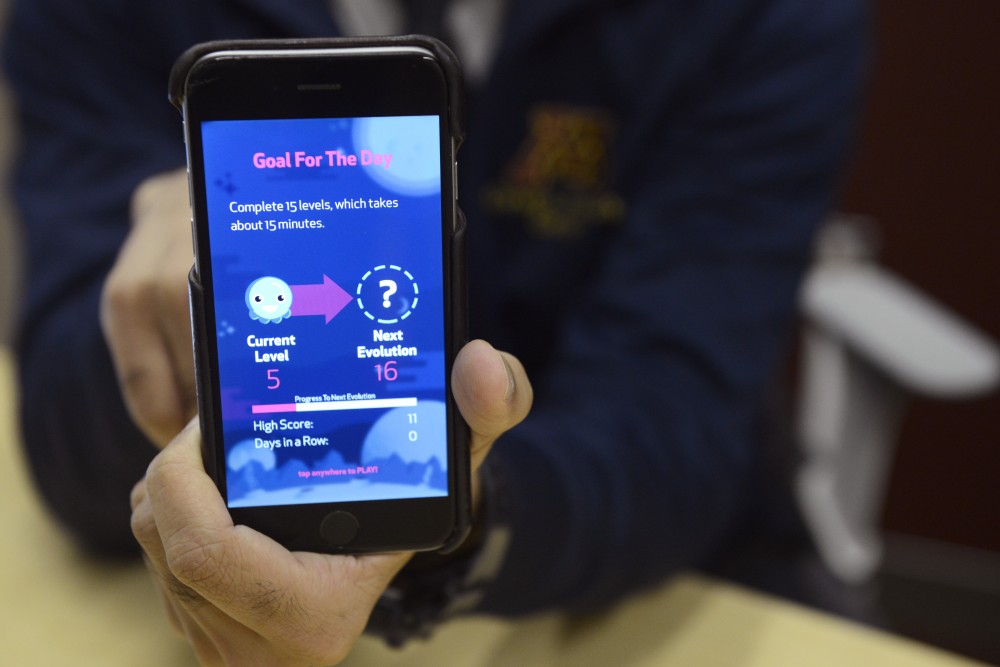Loud, disruptive snoring could be cured through a game that helps players train and strengthen their airways.
The app, called Soundly, is being developed by sleep apnea researchers at the University of Minnesota. Soundly uses daily exercises, presented in a game format, to strengthen the upper airway.
“There are a lot of apps out there that will track sleep, but none that will actually provide therapy,” said Brian Krohn, CEO and co-founder of Soundly.

In Soundly, users take care of an animated character by practicing their throat exercises.
As a user progresses over time, the animated character continues to evolve, like a Pokemon.
The game itself involves users making “knee” and “naw” noises with their voice to control their character, Krohn said.
The specific sounds target areas of the throat whose weakness often leads to snoring.
“Patients are more likely to do it if it’s a game instead of just reading off a sheet of paper,” said Adam Black, co-founder of Soundly and a biomedical scientist.
During a 2016 clinical trial of the app on 16 patients, there was an average snoring reduction of 20 percent, with some patients experiencing more than 60 percent reduction, he said.
It usually takes six weeks of consistent use to see improvement, Krohn said.
Sleep apnea, a medical condition which causes snoring and difficulty breathing during sleep, currently affects around 30 percent of the United States population.
Around 40 percent of the population snores — and most people who snore are middle-aged men, said Umesh Goswami, co-founder and medical director of Soundly.
“[Treatment] is not usually covered by medical insurance, so there’s a huge unmet need … We don’t have any good treatment options,” he said.
Black and Krohn met while they were part of the Earl E. Bakken Medical Device Center’s Innovation Fellows Program at the University in 2016, where they were tasked with inventing solutions to healthcare problems, Krohn said.
After talking with speech pathologists and using ultrasound imaging, Black and the other researchers developed the game as an alternative solution.
The app is also much cheaper than other snoring prevention methods, which can cost thousands of dollars, Goswami said.
It has garnered attention from the University of Minnesota-Fairview Sleep Center and Stanford University Center for Sleep Sciences and Medicine because of its research potential, Krohn said.
The app is currently in beta testing, but is planned to be available in late December of 2017 for around $10 to $15 per month.
Moving forward, Soundly hopes to gain full FDA approval as an apnea treatment rather than just snoring treatment, Black said.








